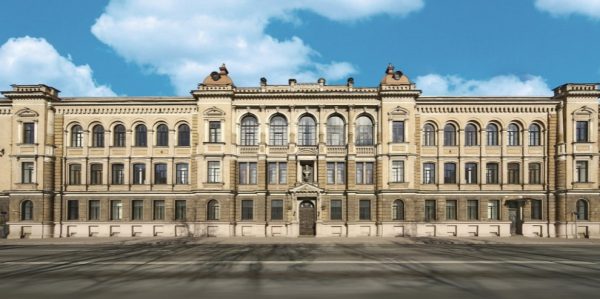School of Mechanical and Electrical Engineering, Dukelská 13, České Budějovice
The Secondary Industrial School of Mechanical and Electrical Engineering in Dukelská Street was founded in 1913. The school is currently attended by 428 pupils (14 of whom are girls), who are provided with a complete secondary vocational education ending with a matriculation examination in two disciplines. These are Mechanical Engineering 23-41-M/01 and Electrical Engineering 26-41-M/01, and have the following focus:
- TECHNICAL SOFTWARE AND ENGINEERING ECONOMICS
- ELECTRICAL POWER ENGINEERING AND ELECTRICAL MACHINERY
- ROBOTICS AND CONTROL TECHNOLOGY
- ELECTROMOBILITY AND ALTERNATIVE DRIVES
We are an open school, we actively involve students and parents in education, as well as partner companies (e.g. ČEZ, EGE, Bosch) and non-profit organizations. Pupils are involved in the development and functioning of the school within the student parliament (e.g. Pupils' Day for Pupils), parents actively address cooperation with the school within the framework of the SRPS. Our aim is to provide pupils with the widest possible outlook in their future careers. We therefore organise various events: a day for companies, for universities and for apprenticeships.
The core full-time courses are Mechanical Engineering and Electrical Engineering, which offer pupils orientation to power (electrical) or low-current electrical engineering, CNC machine programming, automotive fields or business economics as part of elective courses.
A new study programme in Electromobility has also been opened, combining the advantages of both existing programmes. The school cooperates with large companies in the region (ČEZ, EGE, Bosch, ČEPS, Jihostroj, Motor Jikov), which also support the school financially and which often directly choose their future employees here. Therefore, the main ambition of our school is to prepare students comprehensively for professional employment. We emphasize the teaching of foreign languages, good computer skills and basic economics to facilitate the entry into one's own business.
The Secondary Technical School of Mechanical and Electrical Engineering in Dukelská Street was founded in 1913. The school is currently attended by 428 pupils (14 of whom are girls), who are provided with a complete secondary vocational education ending with a matriculation examination in two disciplines. These are Mechanical Engineering 23-41-M/01 and Electrical Engineering 26-41-M/01, and have the following focus:
TECHNICAL SOFTWARE AND ENGINEERING ECONOMICS
ELECTRICAL ENGINEERING AND ELECTRICAL MACHINERY
ROBOTICS AND CONTROL TECHNOLOGY
ELECTROMOBILITY AND ALTERNATIVE DRIVES
We are an open school, we actively involve students and parents in education, as well as partner companies (e.g. ČEZ, EGE, Bosch) and non-profit organizations. Pupils are involved in the development and functioning of the school within the student parliament (e.g. Pupils' Day for Pupils), parents actively address the cooperation with the school within the framework of the SRPS. Our aim is to provide pupils with the widest possible outlook in their future careers. We therefore organise various events: a day for companies, for universities and for apprenticeships.
The core full-time courses are Mechanical Engineering and Electrical Engineering, which offer pupils orientation to power (electrical) or low-current electrical engineering, CNC machine programming, automotive fields or business economics as part of elective courses.
A new course of study in Electromobility is also open, combining the advantages of both existing courses. The school cooperates with large companies in the region (ČEZ, EGE, Bosch, ČEPS, Jihostroj, Motor Jikov), which also support the school financially and which often directly choose their future employees here. That is why the main ambition of our school is to comprehensively prepare students for professional employment. We emphasize the teaching of foreign languages, good computer skills and basic economics to facilitate the entry into one's own business.
Riga State Technical School

Vocational Education Competence Centre "Riga State Technical School" (RSTS) with more than 2500 students and 400 staff is the largest vocational secondary education institution in Latvia. RSTS provides long-term educational policy in the state according with National Vocational Education Standards, Occupational Standards and requirements in labour market. It is a public and non-profit body. The task of RSTS is to prepare the students for work in a specialized profession and to promote knowledge, skills and attitude that correspond to vocational qualifications and support competitiveness in the changing working environment. RSTS provides vocational secondary education and training programs. It provides knowledge and skills required for Level 4 vocational qualification. There are 9 departments in RSTS: Auto, Computer, Business, Chemistry technology, Energetics, Mechanical engineering, Printing, Woodworking and Railway.
RSTS has already years of experience in the areas relevant for the project in vocational education. Since 2010 we have implemented a number of different initiatives - under national and EU programmes. For example: ERAF, ESF, Erasmus+, VET Mobility Charter, united by borders, Nordplus etc. RSTS actively participates not only in Erasmus+ KA2 projects, but also in KA1 projects related to mobility of students and teachers in other countries for gaining and exchanging experience. RSTS started to participate in Erasmus+ KA2 since 2016.
Project partners /hosting organizations: 24 professional secondary education organizations and companies in 15 countries: Bulgaria, France, Estonia, Iceland, Italy, Lithuania, Malta, Netherlands, Norway, Slovenia, Finland, Spain, Turkey, Germany and Sweden.
Teachers and students involved in this project have good communication skills. Teachers are ready for cooperation with colleagues in partner schools, they are ready to learn together and from each other, they have good professional competences as well they are creative. Besides, the constant communication with colleagues as well offers the teachers the chance to use the English or other foreign language in a live and meaningful way. The project coordinator of RSTS will be responsible of administration, coordination of activities and reporting on behalf of RSTS. Project activities in RSTS will be done by utilizing the experience and knowledge of teachers of RSTS, involvement of students and collaboration with companies.
